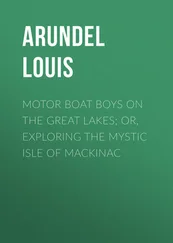James Curwood - The Great Lakes.The Vessels That Plough Them
Здесь есть возможность читать онлайн «James Curwood - The Great Lakes.The Vessels That Plough Them» — ознакомительный отрывок электронной книги совершенно бесплатно, а после прочтения отрывка купить полную версию. В некоторых случаях можно слушать аудио, скачать через торрент в формате fb2 и присутствует краткое содержание. Жанр: foreign_language, foreign_prose, на английском языке. Описание произведения, (предисловие) а так же отзывы посетителей доступны на портале библиотеки ЛибКат.
- Название:The Great Lakes.The Vessels That Plough Them
- Автор:
- Жанр:
- Год:неизвестен
- ISBN:нет данных
- Рейтинг книги:4 / 5. Голосов: 1
-
Избранное:Добавить в избранное
- Отзывы:
-
Ваша оценка:
- 80
- 1
- 2
- 3
- 4
- 5
The Great Lakes.The Vessels That Plough Them: краткое содержание, описание и аннотация
Предлагаем к чтению аннотацию, описание, краткое содержание или предисловие (зависит от того, что написал сам автор книги «The Great Lakes.The Vessels That Plough Them»). Если вы не нашли необходимую информацию о книге — напишите в комментариях, мы постараемся отыскать её.
The Great Lakes.The Vessels That Plough Them — читать онлайн ознакомительный отрывок
Ниже представлен текст книги, разбитый по страницам. Система сохранения места последней прочитанной страницы, позволяет с удобством читать онлайн бесплатно книгу «The Great Lakes.The Vessels That Plough Them», без необходимости каждый раз заново искать на чём Вы остановились. Поставьте закладку, и сможете в любой момент перейти на страницу, на которой закончили чтение.
Интервал:
Закладка:
James Oliver Curwood
The Great Lakes / The Vessels That Plough Them: Their Owners, Their Sailors, / and Their Cargoes
Preface
In this volume, it has been my object to tell of the people and of the picturesque life of the Great Lakes, and to set before my readers actual facts about the cities, the commerce, and the future of the greatest fresh-water seas in the world. For some unaccountable reason, the Great Lakes, notwithstanding the fact that more than thirty million people live in the States bordering their shores, and in spite of the still more remarkable fact that they are doing more than anything else on the American continent for the commercial progress of the nation, have been almost entirely neglected by writers. To-day there are but few people who know that one of the three greatest ports and the largest fleet of freighters in the world are on these unsalted waters; and I mention the fact in this particular place simply to bring home to the casual reader how little is known by the public at large about our Inland Seas. For this reason, I have not dealt with any single side of Lake life, but have attempted to present as many phases of it as I could; and, for the same reason, I have added a brief historical account of the Lakes at the end of the book. It has been my desire, too, that these pages, from the beginning, should prove of especial value to those many thousands all over the world who are, or may in the future be, directly interested in the Lakes in a business way; and a great deal of attention has, therefore, been given to the commercial side of my subject – statistics and facts regarding Lake commerce, the opportunities of the present day, and a forecast of what the coming years hold in store for the men who have investments, or who plan to invest in business enterprises, on or about the Great Lakes.
While dwelling upon the importance of the commercial life of the Inland Seas, I wish also to emphasise the fact that I have kept always in mind another large class of people who are keenly interested in my subject, though not from a commercial standpoint. The present volume is designed to interest this latter class by portraying another side of Lake life – the human side, the romance and the tragedy that have played their thrilling parts upon these waters; the wonders of their progress; the story of their ships, their men, their wars, for of all the pages in the history of the North American continent none are more thrilling, or more filled with the romantic and the picturesque, than those which tell the story of our fresh-water seas.
In conclusion, I wish to say that I owe a great debt of gratitude to the scores of Lake “owners,” ship-builders, and captains who have aided me, in every way possible, in the preparation of this volume, and without whose personal co-operation the writing of it would have been impossible.
J. O. C. Detroit, Michigan, 1909.PART I
The Ships, their Owners, their Sailors, and their Cargoes
I
The Building of the Ships
Not long ago, I was on a Lake freighter pounding her way up Huron on the “thousand-mile highway” that leads to Duluth. Beside me was a man who had climbed from poverty to millions. He was riding in his own ship. His interests burned ten thousand tons of coal a year. He was one of the ore kings of the North – as rough as the iron he dug, filled to the brim with enthusiasm and animal energy of the Lake breed; a man who had helped to make the Lakes what they are, as scores of others like him have done. Before and behind us there trailed the smoke of a dozen of the steel leviathans of the Inland Seas. I had asked him a question, and there was the fire of a great pride in his eyes when he answered.
“It would make a nation by itself – this Lake country!” he said. “And it would be America. It’s America from Buffalo to Duluth, every inch of it, and the people who are in it are Americans. That’s American smoke you see off there, and American ships are making it; they’re run by a thousand or more American captains, and they’re Americans fore ’n’ aft, too. We’ve got only eight States along the Lakes, but if we should secede to-morrow the world would find us the heart and power of the nation. That’s how American we are!”
This is the patriotism one finds in the Lake country, from the roaring furnaces of the East to the vast ore beds of Minnesota. It is representative of the spirit that rules the Inland Seas; it is this spirit that has built an empire, and is building a vaster empire to-day, along the edges of the world’s greatest fresh-water highways.
With more than thirty-four millions of people living in the States bordering on them, possessing one third of the total tonnage of North America, and saving to the people of the United States five hundred million dollars each year, or six dollars for every man, woman, and child in the country, one of the most inexplainable mysteries of the century exists in the fact that the Great Lakes of to-day are as little known to the vast majority of Americans as they were a quarter of a century ago. While revolutions have been working in almost all lines of industry, while States have been made and cities born, America’s great Inland Seas have remained unwatched and unknown except by a comparative few. Upon them have grown the greatest industries of the nation, yet the national ignorance concerning them can hardly find a parallel in history. Were they to disappear to-morrow the industrial supremacy of the republic would receive a blow from which it could never recover. The steel industry, as a dominant commercial factor, would almost cease to exist. One half of the total population of the country would be seriously affected, and America would fall far behind in the commercial race of the nations.
Notwithstanding these things, not one person in ten knows what the Great Lakes stand for to-day. While a thousand writers have sung of the greatness and romance of the watery wastes that encircle continents, none has told of those “vast unsalted seas” which mean more to eighty-five millions of Americans than any one of the five oceans. What has been written has been for those who find their commerce upon them; for the owners of ships and the masters of men; for the kings of ore and grain – a little statistical matter here and a little there, but nothing for the millions who are not at hand to feel the pulse of traffic or to see the great commercial pageant as it passes before their eyes. Even of those who live in the States bordering the Great Lakes but few know that these fresh-water highways of traffic possess the greatest shipping port in the world, that upon them floats the largest single fleet of freighters in existence, that in their great construction yards shipbuilding has been reduced to a science as nowhere else on earth, and that in their life the elements of romance and tragedy play their parts even as on the big oceans that divide hemispheres.
In a small way the general lack of knowledge of the Great Lakes is excusable, for their development has been so rapid and so stupendous that people have not yet grasped its significance. Within the last quarter of a century or less they have become the industrial magnets of the nation. Along their shores have sprung up our greatest cities, with populations increasing more rapidly than those of New York, Boston, Philadelphia, or San Francisco. In the eight States which have ports on them is more than one third of the total population of the North American continent. Along their three thousand three hundred and eighty-five miles of United States shore line will be built this year more than one half of the tonnage constructed in America, and over their highways will travel at least six times as much freight as all the nations of the world carried through the Suez Canal in 1908.
Читать дальшеИнтервал:
Закладка:
Похожие книги на «The Great Lakes.The Vessels That Plough Them»
Представляем Вашему вниманию похожие книги на «The Great Lakes.The Vessels That Plough Them» списком для выбора. Мы отобрали схожую по названию и смыслу литературу в надежде предоставить читателям больше вариантов отыскать новые, интересные, ещё непрочитанные произведения.
Обсуждение, отзывы о книге «The Great Lakes.The Vessels That Plough Them» и просто собственные мнения читателей. Оставьте ваши комментарии, напишите, что Вы думаете о произведении, его смысле или главных героях. Укажите что конкретно понравилось, а что нет, и почему Вы так считаете.












